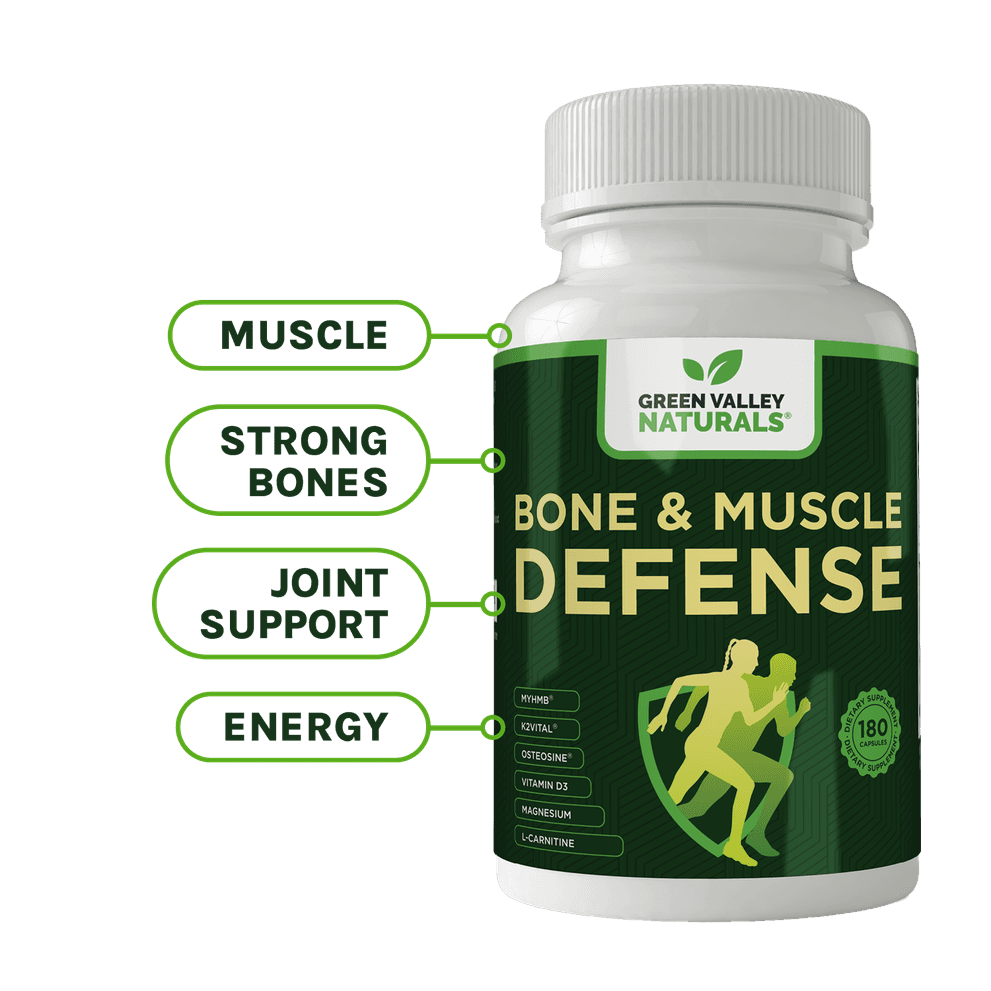
The Greek scientists were surprised. How can the amount of fat on your arm tell you anything about the risk of fracture in your spine? They have nothing to do with each other. Well, not in conventional medicine, which divides the body into separate areas. But for those of us who inhabit the world of holistic health, it’s no surprise because we view the body as an interconnected whole.
Key Takeaways
- Higher arm fat correlates with lower spine bone quality.
- Fat, especially visceral fat, produces inflammation, which weakens bone strength.
- A three-second daily muscle-strengthening exercise can improve bone and muscle health.
Fat, Hormones, and Bone Strength
So, what’s the connection between such diverse structures in far-apart areas of the body? It concerns hormones and inflammation, which is a recurring nemesis, especially among older folks.
If you’re over 50, you’ll want to pay close attention. That’s because the prevalence of low bone mass among older Americans is alarming. Measured at the hip or lower spine, it’s shown to affect half of women (50 percent) and 33 percent of men over fifty. If the condition deteriorates, it results in osteoporosis. Worse, this condition may be symptomless until a bone gets fractured, commonly occurring in the spine.
Even if successfully treated, complications can develop, and during the year following a fracture, the risk of death for the over 50 set leaps by ten percent for spinal fractures and over 20 percent for fractures of the hip, pelvis or femur[1]. That’s why researchers are paying close attention to the results of a groundbreaking study that not only demonstrates a surprising connection between bone strength and muscle fat, but also signals a way to avoid fractures.
More Visceral Fat – Less Bone Quality
The study included 69 women and 14 men aged 51 to 72 without osteoporosis. Each was assessed initially for body mass index (BMI) and bone quality in the lumbar spine.
To test bone quality, the researchers used dual-energy X-ray absorptiometry (DXA), which measures bone mineral density (BMD). Trabecular bone score (TBS) assesses the quality of bone and predicts new fractures independently of BMD.
Their analysis revealed that whether body mass index is low, normal, or high, the more excess body fat, the lower the spine quality. This adds to the increasing evidence that BMI doesn’t reliably predict the risk of disease. What’s more, the greater the fat located deep inside the abdomen and around Internal organs - visceral fat - the lower the quality of the spine’s trabecular bone - the spongy-looking porous interior of bones. We’ve previously reported on the many harms of visceral fat.
The researchers then focused on the distribution of body fat under the skin.
Using Skin Calipers To Measure Bone Strength
Here, they discovered that participants with higher fat mass in the arms were more likely to have lower bone quality and strength in the spine.[2]
“Surprisingly, we identified, for the first time, that the body composition of the arms — in particular, the fat mass of the arms — is negatively associated with the bone quality and strength of the vertebrae,” said senior author Professor Eva Kassi from the University of Athens.
“This could mean that the arm’s subcutaneous fat, which can be easily estimated even by the simple and inexpensive skin-fold caliper method, may emerge as a useful index of bone quality of the spine, possibly predicting the vertebrae fracture risk.”
The Surprising Link Between Fat Stores and Bone Health
As to how the two are connected, she explained, “It should be noted that visceral fat — which we found to be strongly correlated with low bone quality — is the hormonally more active component of the total body fat. It produces molecules called adipocytokines that provoke a low-grade inflammation, so the increased inflammatory status plausibly poses a negative impact on bone quality.”
While Professor Kassi described their research as robust, she admitted that larger trials with more men and younger age groups are needed to confirm the findings.
“Moreover,” she added, “using the loss of arm fat mass as a marker, we will try to determine the most effective physical exercise routine that not only targets the visceral fat but also focuses on the upper part of the body so that these higher-risk adults lose arm fat and achieve a favorable effect on vertebrae bone quality.”[3]
This will take some years to work out, but you don’t have to wait as there’s a mind-blowingly simple yet effective exercise you can perform right now that will move you in the right direction.
The Three Second A Day Workout
The Centers for Disease Control (CDC) recommends seniors engage in muscle-strengthening exercises at least two days a week. If you haven’t yet started, here’s a simple exercise that will take you just 60 seconds a month—no, that’s not a misprint—so there’s no excuse for not doing it. All you need is a ten-pound weight or start with a smaller weight if necessary.
Hold the weight in your right hand. Stand up against a wall and bend your left arm so your left fingers touch your shoulder. Transfer the weight to your left hand. The exercise begins now.
All you need to do is slowly lower the weight until your arm is straight. Do this just once. Now, repeat with the right arm.
Research shows that performing a single muscle contraction in each arm at maximum effort for just three seconds a day, five days a week over four weeks, will increase overall muscle strength by 11.5 percent. Thanks to the new findings from Greek scientists, we now know your spine will thank you, too.
Our Takeaway
It’s also a good idea to try to maintain a healthy weight. While many are obsessed with keeping their weight down, not many have been told that cutting calories is not the best way to lose and keep weight off, especially if you eat the typical American diet.
Many Americans are hooked on highly processed foods. However, a growing amount of research shows that if you eat whole-natural foods – mostly plant-based – that are unprocessed, you will consume natural compounds that can help you shed excess pounds and keep them off.
The easiest way is to follow a low-carbohydrate Mediterranean diet by focusing on fresh vegetables, fruits, whole grains, lean proteins, and healthy oils like olive oil. Building a plate with these foods should give you all you need for a long, healthy life.
Summary
Recent research from Greek scientists reveals a surprising connection between arm fat and spinal bone quality. Higher fat mass in the arms is linked to lower bone strength in the spine, likely due to the impact of visceral fat and inflammation on bone health. This study highlights the importance of regular muscle-strengthening exercises to reduce fat and improve bone quality, offering a simple yet effective exercise routine for seniors to help protect against fractures.

